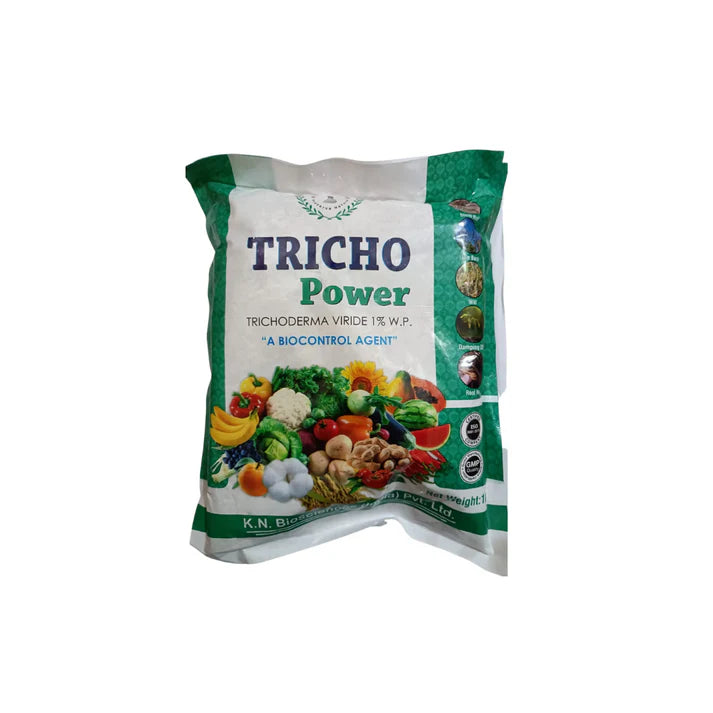
Trichoderma viride: Uses and Applications in Agriculture
Share
Introduction
Fungal Biocontrol Agent: Trichoderma viride is a beneficial fungus widely used in agriculture for its biocontrol properties.
Soil Health Enhancer: It promotes soil health by decomposing organic matter and improving nutrient availability.

Biological Characteristics
Saprophytic Nature: Trichoderma viride thrives on decaying organic matter, making it an effective decomposer.
Antagonistic Properties: It inhibits the growth of harmful pathogens through competition, mycoparasitism, and production of antimicrobial compounds.
Uses of Trichoderma viride in Agriculture
Disease Control
Pathogen Suppression: Trichoderma viride controls various soil-borne diseases caused by pathogens like Fusarium, Pythium, and Rhizoctonia.
Induced Resistance: It enhances the plant’s natural defense mechanisms, providing long-term disease resistance.
Plant Growth Promotion
Enhanced Nutrient Uptake: Trichoderma viride improves nutrient absorption by plants, leading to better growth and yield.
Root Development: It stimulates root growth, resulting in healthier and more resilient plants.
Applications of Trichoderma viride in Agriculture
Seed Treatment
Seed Coating: Trichoderma viride is applied as a coating on seeds to protect them from soil-borne pathogens during germination.
Enhanced Germination: Treated seeds exhibit higher germination rates and vigor.
Soil Amendment
Compost Enrichment: Adding Trichoderma viride to compost accelerates decomposition and enriches the compost with beneficial microbes.
Soil Health Improvement: It enhances soil structure, fertility, and microbial diversity.
Foliar Application
Disease Control: Spraying Trichoderma viride on plant foliage helps control foliar diseases and boosts plant immunity.
Stress Tolerance: It increases plant tolerance to abiotic stresses such as drought and salinity.
Sustainable Agriculture and Trichoderma viride
Organic Farming
Natural Biocontrol: Trichoderma viride is a key component in organic farming systems, offering a natural alternative to chemical pesticides.
Eco-Friendly Practices: Its use promotes sustainable and environmentally friendly farming practices.
Integrated Pest Management (IPM)
Complementary Tool: Trichoderma viride can be integrated with other biocontrol agents and cultural practices for effective pest and disease management.
Reduced Chemical Dependency: It helps in reducing the reliance on chemical inputs, promoting safer food production.
